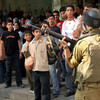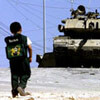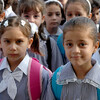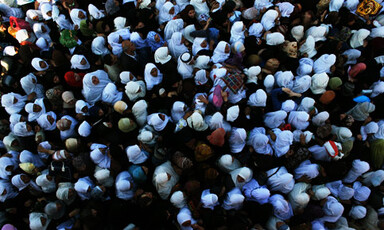
Rights orgs: Uphold international law at Annapolis
26 November 2007
The following letter was sent on 26 November 2007 to key negotiating parties including the President of the Palestinian National Authority, the Israeli Prime Minister and Foreign Minister, and EU and UN Officials: As Palestinian human rights and civil society organizations, we the undersigned, are deeply concerned by the lack of a clearly articulated legal framework for the upcoming diplomatic negotiations between Israel and the Palestinian National Authority (PNA) to be held at Annapolis on 27 November. Read more about Rights orgs: Uphold international law at Annapolis








